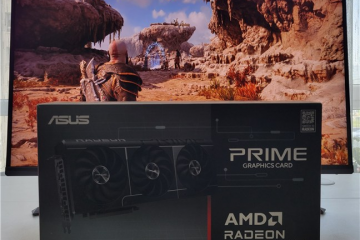A landmark legal battle over the future of artificial intelligence and creative rights began today in London’s High Court, as Getty Images takes on AI startup Stability AI. In opening arguments, Getty’s lawyers framed the case as a “day of reckoning”for AI companies that use copyrighted works without permission, setting the stage for a trial that could redefine the legal boundaries for AI development in the United Kingdom.
The dispute crystallizes a core conflict of the generative AI era: whether AI developers can freely use online content to build powerful commercial tools. Getty sostiene che l’IA di stabilità è impegnata in raschiatura illegale della sua vasta biblioteca visiva per addestrare il suo popolare modello text-a-immagine, diffusione stabile. Stability AI is fighting the claims, arguing the case is fundamentally about technological progress.
The outcome is being closely watched by both creative professionals and tech developers, as it could fundamentally alter the economics of AI development. According to reporting from Reuters, legal experts believe the case is pivotal, venturing into what Rebecca Newman, a lawyer at Addleshaw Goddard, called “Legally, we’re in uncharted territory. This case will be pivotal in setting the boundaries of the monopoly granted by UK copyright in the age of AI,”.

AI Training on Copyright Protected Images
As reported by AP News, during opening arguments in London, Getty’s trial lawyer, Lindsay Lane, argued that the case is about the “straightforward enforcement di diritti di proprietà intellettuale”. She asserted that Stability AI was “completely indifferent”to the copyrighted nature of the works it used, which included at least 12 million images from Getty’s collection.
Lane told the court that while Getty recognizes AI as a force for good, that doesn’t justify developers riding “roughshod over intellectual property rights.”In an official statement, the company in 2023 elaborated on this position, stating, “Stability AI did not seek any such license from Getty Images and instead, we believe, chose to ignore viable licensing options and long‑standing legal protections in pursuit of their stand‑alone commercial interests.”
The core of Getty’s argument is that the problem arises when AI companies like Stability AI want to use creative works without payment, with Lane declaring, “This trial is the day of reckoning for that approach,”.
A Defense of Jurisdiction and Innovation
Beyond the legal technicalities, Stability AI is defending its methods on broader principles. A spokesperson for the company framed the dispute as being about “technological innovation and freedom of ideas,”adding that their tools allow artists to create works built upon “collective human knowledge, which is at the core of fair use and freedom of expression.”This defense comes as the company navigates significant financial and leadership changes, having secured a new funding round and CEO after a period of monetary difficulty.
Getty’s legal action is not a wholesale rejection of artificial intelligence. In una mossa che sottolinea la sua posizione sfumata, la società ha sviluppato e lanciato il proprio strumento di intelligenza artificiale,”AI Generative By Getty Images”. Crucially, this tool was trained exclusively on Getty’s own licensed content, and the company has established a model to compensate the artists whose work contributed to the training data.
This dual strategy—aggressively litigating against the unauthorized use of its content while simultaneously commercializing its own ethically-sourced AI—positions Getty’s fight as one centered on control and compensation, rather than a simple opposition to technology.
The Broader Copyright Battle
The Getty-Stability AI showdown is a key front in a worldwide struggle to apply existing copyright law to generative AI. A similar dynamic is unfolding in the music industry, where major record labels are suing AI music generators Suno and Udio for copyright infringement while also reportedly engaging in licensing talks with them.
Across the Atlantic, a US judge in a copyright case brought by authors against Meta has signaled that the key test for “fair use”may ultimately hinge on proven market harm rather than the act of data piracy itself. Meanwhile, the UK’s political climate is equally charged.
In May, hundreds of creative leaders, including Paul McCartney and Elton John, urged the government to mandate transparency from AI companies regarding their training data, arguing that copyright law cannot be enforced if the “crime”of infringement cannot be seen. With legislative efforts stalled, the High Court’s decision has become even more critical in drawing the first definitive legal lines for the UK’s AI industry.

